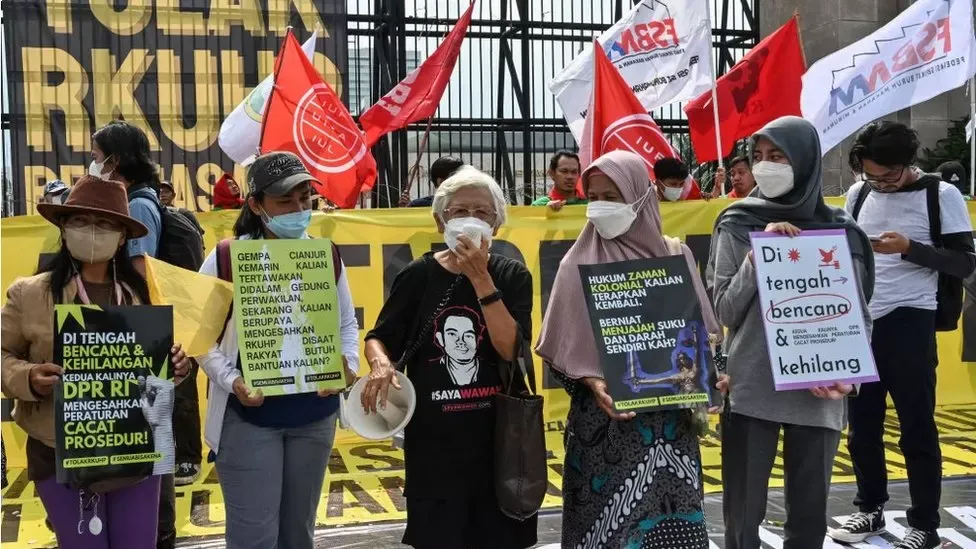Indonesia Outlaws Sex Outside Marriage
On Tuesday, Indonesia’s parliament unanimously approved a new criminal code making premarital sex, adultery, and live-in relationships punishable by up to a year in prison.

Facts
- On Tuesday, Indonesia’s parliament unanimously approved a new criminal code making premarital sex, adultery, and live-in relationships punishable by up to a year in prison.
- Albert Aries, Indonesia’s law and human rights ministry spokesperson, defended the widely-criticized amendments, saying they "protect marriage institutions.” He added that only a spouse, parent or child could report acts of extramarital sex.
- The new criminal code, which also applies to foreigners, further bans insulting the president, state institutions, and the Southeast Asian country’s ideology.
- Yasonna Laoly, Indonesia’s minister of law and human rights, said it was time to “make a historic decision" and "leave the colonial criminal code we inherited behind.” In 2019, the draft proposals sparked nationwide protests amid fears it would curtail human rights.
- Rights groups allege sweeping changes to the country’s criminal code could threaten civil liberties and religious tolerance. Amnesty International's Indonesia director Usman Hamid claimed “we are going backwards,” and that, “our democracy is indisputably in decline.”
- The new criminal code could be challenged in the Constitutional Court. It may take up to three years before the new law replaces the current legislative framework.
Sources: BBC News, Guardian, CNN, Sky, Enca, and Voa.
Narratives
- Pro-establishment narrative, as provided by CNN. The new law is simply morality policing aimed at suppressing free speech, civil liberties, religious freedom, and legitimate criticism. Not only does it disproportionately affect women, the LGBTQ community, and ethnic minorities in the country, the new criminal code severely dents Indonesia’s image as a tourism and investment destination.
- Establishment-critical narrative, as provided by Outlook India. Indonesia is a multicultural and multi-ethnic country. The government has done its best to accommodate all interests. For instance, the law maintains that abortion is a crime but adds exceptions for women with life-threatening medical conditions and in cases of rape. Gay sex is also still legal. Indonesia's attempt to break away from its colonial living legacy needs to be celebrated, not outrightly dismissed.






